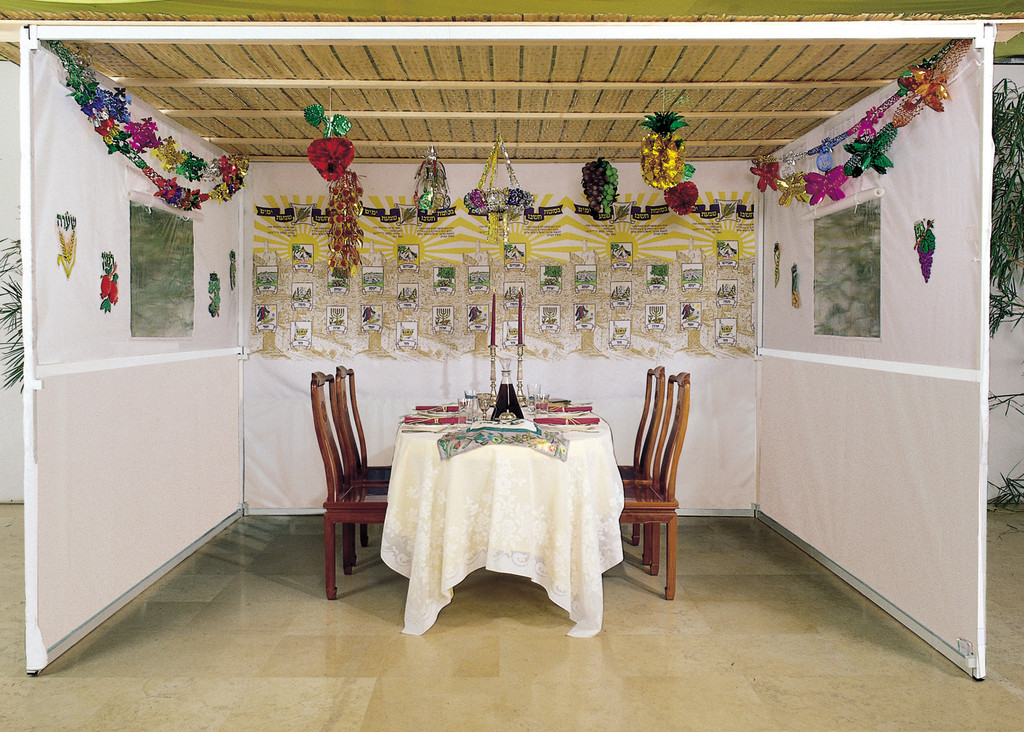Succot 5772: Understanding the mitzvah of dwelling in the Succah
Dedicated to the sacred memory of my sister-in-law, Ruchama Rivka Sondra, and the refuah shlaimah of Yosef Shmuel ben Miriam.
On the surface, the mitzvah of dwelling in the succah appears to be quite straightforward. The Rambam formulates the mitzvah in the following fashion:
What is the mitzvah of dwelling in the succah? One should eat and drink and dwell in the succah for the entire seven-day period both at night and during the day in exactly the same manner that he dwells in his house during the other days of the year. Throughout the entire seven-day period a person should treat his house as a temporary dwelling and his succah as his permanent dwelling.
As it says in the verse: You shall dwell in succot for seven days [Vayikra 23:42]. (Mishneh Torah, Sefer Zemanim, Hilchot Succah 6:5) (This and all translations my own)
The Rambam’s emphasis is clearly upon the maaseh hamitzvah, the actual manner in which the commandment is to be performed. Moreover, his presentation is, in reality, an excellent synopsis of material that has already been clearly presented in earlier Talmudic sources, and does not contain any chidush (unique idea).
In contrast, Rav Yaakov ben Asher (1270-1340), known as the “Tur” after the name of his monumental work, spends a good deal of time in his introduction to Hilchot Succah presenting and analyzing the rationale behind this mitzvah:
“You shall dwell in succot for seven days…in order that you should know throughout the generations that I caused the Jewish people to dwell in succot when I led them out …[from Egypt]” [Vayikra 23:42]. The Torah makes the mitzvah of succah dependent upon the Exodus from Egypt. So, too, in the case of many other mitzvot. This is so since this is a matter that we saw with our eyes and heard with our ears and no one is able to deny it. It teaches us about the truth of the existence of the Creator, may He be exalted, and that He created everything according to His will. It also teaches us that He has the power, the dominion, and the ability, both in the upper and lower worlds to do with them as He so desires…
Rabbeinu Yaakov uses this introduction as a podium for presenting the true meaning and significance behind the oft-quoted phrase “zacher l’yitziat mitzraim” (“a reminder of the Exodus from Egypt”) that is found in every single Kiddush that we recite and, quite often, along side many of the mitzvot in the Torah.
Rabbi Yoel Sirkes (1551-1640), known as the “Bach” after the name of his commentary on the Tur, plumbs the depths of Rabbeinu Yaakov’s analysis. In doing so, he reveals the hidden levels of meaning that are fundamental to the mitzvah of dwelling in the succah. He notes that the Tur’s true point in explaining Vayikra 23:42, is the concept that: “The proper intention (kavanah) that one should have in performing the mitzvah of succah is that of remembering the Departure from Egypt.” The Bach repeats this interpretation of the Tur’s analysis by noting: “The purpose of the mitzvah of succah is to remember the Departure from Egypt. This is accomplished through one’s dwelling in a succah wherein the shade is greater than the sun. This, in turn, is a reminder of the Clouds of Glory that protected them [the Jewish people]…”Almost as an aside, he gives us a glimpse of the highest form of fulfilling this commandment. Although he states that: “… the true understanding of the verse does not state that the proper intention underlying the mitzvah of succah is ‘in order that you should know throughout the generations that I caused the Jewish people to dwell in succot,’” he adds: “… this portion of the verse will enable one to fulfill the mitzvah in its most proper fashion (k’tikunah).”
In other words, for the Bach, if one wants to fulfill the mitzvah of dwelling in the succah in the most complete manner, he must focus upon two aspects of the mitzvah: its inextricable connection to the Exodus and a clear and present knowledge that Hashem, in His great and endless beneficence, caused us to dwell in succot when He mercifully took us out of Egypt.
May it be Hashem’s will that when He sees us dwelling in our succot this chag (holiday), He will fulfill the beautiful words of our Friday night tefilot (prayers): “And spread over us the succah of Your peace. Blessed are You Hashem, Who spreads the succah of peace upon us and upon all His people Israel and upon Jerusalem.” May this Succot herald the coming of Mashiach Tzidkeinu (the one and only Messiah), the rebuilding of the Beit HaMikdash, and true and everlasting peace for the Jewish people and all mankind. V’chane yihi ratzon.
Chag Sameach!
Past drashot may be found at my website:
http://reparashathashavuah.weebly.com/
The email list, b’chasdei Hashem, has expanded to hundreds of people. I am always happy to add more members to the list. If you would like to be added contact me via email at rdbe718@gmail.com.

 39.0°,
Fair
39.0°,
Fair 




